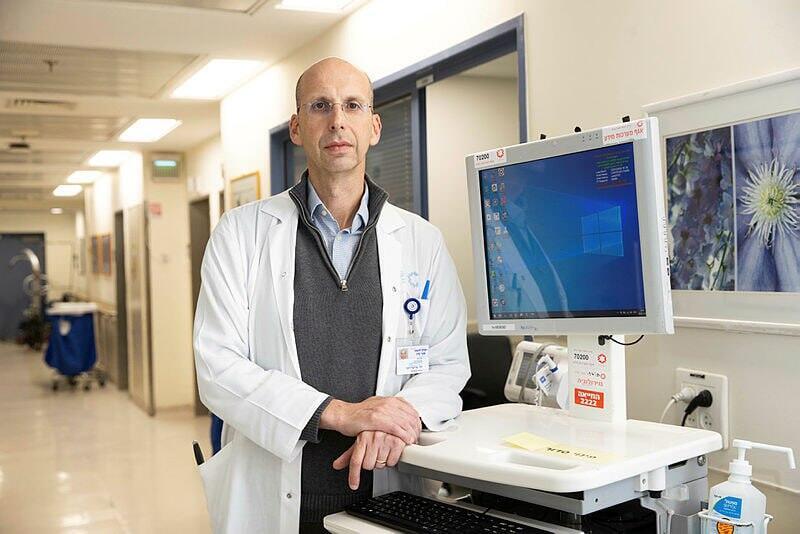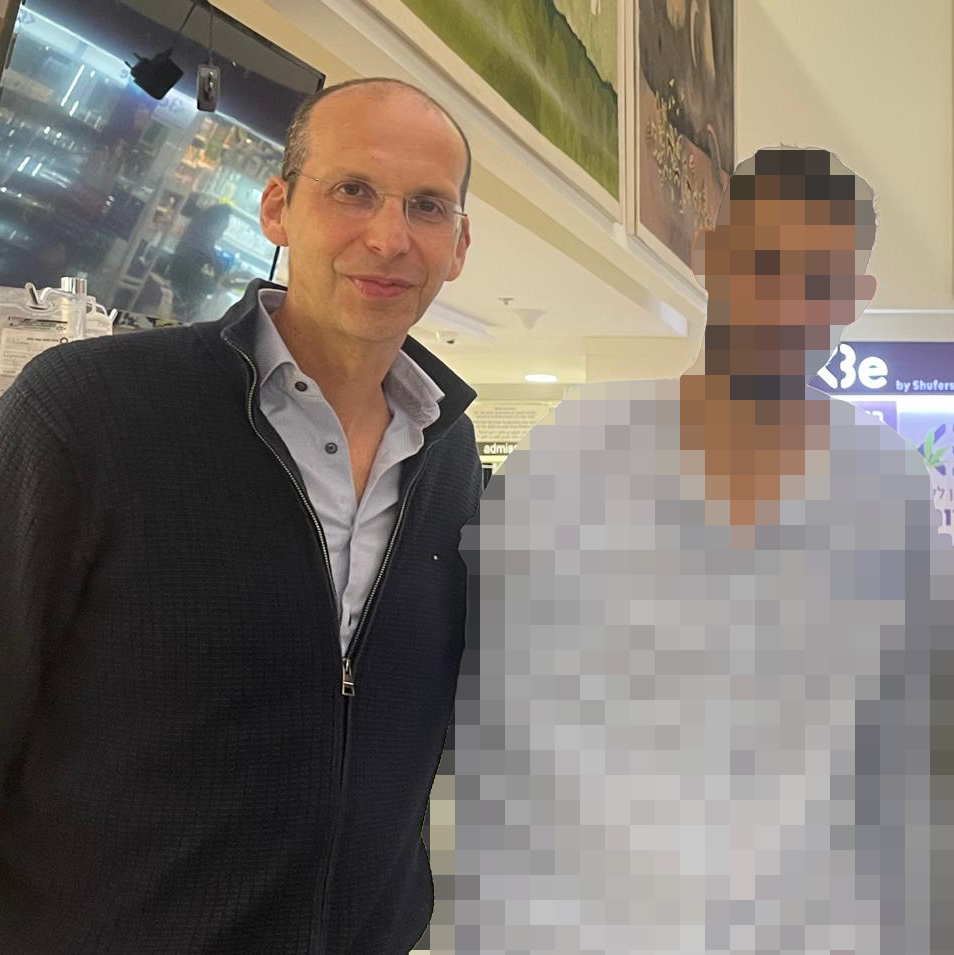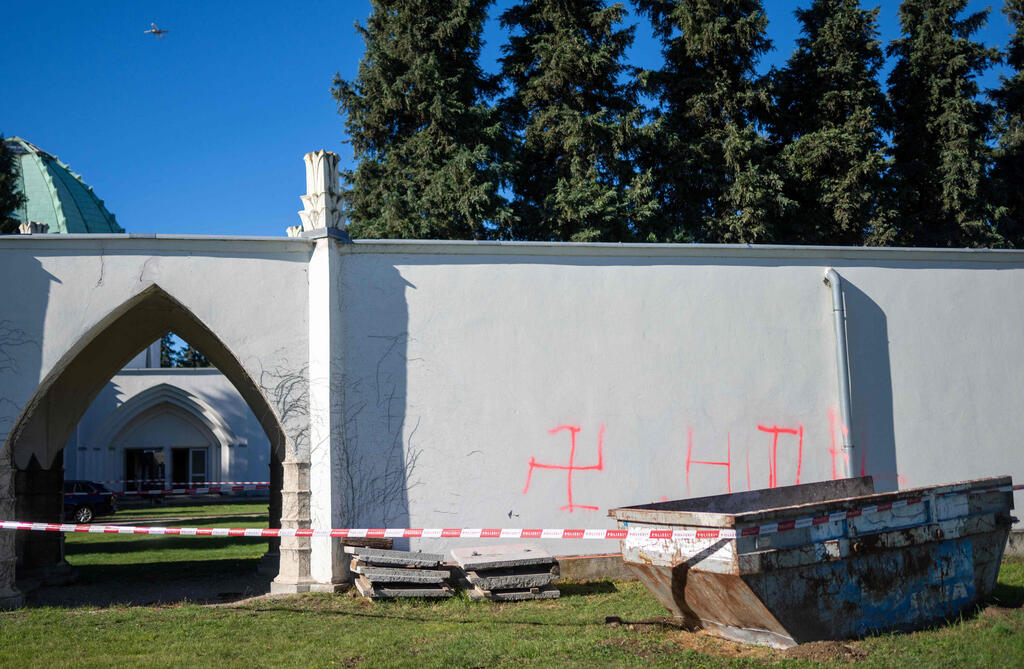Getting your Trinity Audio player ready...
At 8:30 a.m. on October 7, Dr. Roni Eichel was already en route to accompany his son, a soldier in an elite unit, to his military base. Similar to the entire nation of Israel, he was unaware of what the day would entail. "Looking back, I now know they engaged in combat in the Gaza border region," he recounts. "He was truly confronting the terrorists face to face. He played a role in the team that ensured Kibbutz Mefalsim remained unoccupied by Hamas. Furthermore, he later took part in battles to liberate Nahal Oz."
Read more:
"The worries have been with me since October 7 and continue even now, just like all the families with children serving as soldiers or reservists," he explains. "Sleeping becomes difficult, eating properly becomes a challenge, and I'm constantly on edge with every glance at my phone. If an unidentified number calls suddenly, fear rushes through me, thinking it might be the officer delivering bad news. That's the reality of my life at the moment. However, I must admit that it's even more challenging when you don't have a job, and my work demands constant focus. It helps a little to divert my attention from the worries."
And Eichel speaks from personal experience. Just a little over a month ago, his worst fear became a reality when his son was injured in ground combat in Gaza.
"It happened in Khan Younis, a severe chest injury," according to Eichel. "They evacuated him swiftly. Having served as a doctor in the army, both in a unit and at the brigade level, having been through multiple wars since I arrived in this country, I can confidently say that the medical treatment and the speed of the evacuation were incredibly remarkable. The field treatment saved his life. Thank God, he is now recovering and undergoing rehabilitation at Sheba Medical Center."
Eichel explains that his profession as a doctor actually made it more challenging to deal with the distressing news.
"In addition to my specialization in neurology, I have expertise in intensive care. When I heard that my son was injured and about to undergo surgery, my world completely shattered," he shares. "Thanks to my connections with friends at Soroka Hospital, I quickly gained some knowledge about the nature of the injury and what to expect. We hurriedly made our way to Soroka under immense pressure. From this experience, I've learned that, on one hand, being a doctor with an understanding of trauma and intensive care has its advantages. However, the most difficult part is that the worries never cease."
Eichel says that his son "received exceptional care from an incredible team, both in hospitals, the military, and the association. Yet, as a doctor, I am acutely aware of all the potential complications that can arise, even if they are rare. I am constantly on high alert, fearing that something might go wrong. I am always monitoring the healing process, ensuring there are no signs of infection or bleeding. In practice, it becomes significantly more challenging. Now, as he undergoes rehabilitation, I strive to alleviate some of the worries."
From wearing robes to dispelling tropes
The doctor is deeply troubled by the escalating global antisemitism, both as a German citizen and as a doctor.
"In the first two weeks following October 7, we were profoundly shocked and disturbed. As medical professionals, we have connections with international associations. We travel the world attending conferences, collaborating with others, and meeting fellow professionals," he explains. "We expected our colleagues to condemn the atrocities committed by Hamas. We anticipated public statements from various associations, calling for the immediate release of the captives and denouncing antisemitism. However, to our disappointment, no such statements were made. This was especially disheartening considering that many of them had issued statements when the war began in Russia."
When they received no response, Eichel and his colleagues actively pursued a reaction. "Unfortunately, we came to realize that it wasn't as straightforward as we had hoped. In some cases, we had to apply significant pressure," he reveals. "At a certain point, I made the decision to use my upbringing in Germany, my education in medicine there, and the connections I have to leverage my influence. I wrote to influential associations, including the German Medical Association, demanding a condemnation of Hamas and calls for the immediate release of the hostages."
When no response was forthcoming, Eichel reached out to the German-Jewish Medical Association. Collaboratively, they made the decision to create a collaborative initiative involving Israeli and German doctors to contribute to global advocacy efforts. The initiative, known as "Doctors Against Antisemitism," has achieved significant success. It has even garnered praise from the German ambassador.
"This is the most extensive initiative within a specific profession in Germany to combat antisemitism. While there are other organizations, in terms of an organization focused on a particular profession, we are the largest," Eichel asserts.
Within the scope of their advocacy efforts, the initiative endeavors to employ innovative approaches. One such approach involves organizing online professional lectures on specific medical subjects that are connected to the events of October 7.
"We have found this to be a highly effective and efficient mechanism," explains Eichel. "We are well aware that people in Europe and the Western world tend to forget quickly. By inviting expert lecturers to address relevant topics within their respective fields, we recreate the atmosphere of a medical conference."
According to Eichel, the group now comprises nearly 600 doctors. He firmly believes that the professional community possesses the capacity to enact tangible change and emphasizes that the diminishing influence of the Israeli medical community worldwide yields significant consequences.
"We aspire for the Western world to acknowledge our challenges and stand in solidarity with us, yet this objective seems elusive," he says. "Despite our considerable efforts, attaining success in this endeavor proves elusive. Nevertheless, the medical community serves as a strategic asset for our nation, ensuring our ability to maintain the quality of care, secure research funding, and access new medications. Additionally, it facilitates indirect funding through various organizations. Sustaining these connections necessitates the ongoing work we undertake.
"Based on past experiences at medical conferences, representatives from Iran are met with suspicion due to the nature of their dictatorship, raising doubts about the reliability of their research findings. It is important for us to exercise caution to avoid aligning ourselves with similar ideologies, and this initiative plays a role in that effort. With Germany boasting one of the largest, if not the largest, medical communities in Europe, positive influence within their community has a ripple effect across the entire continent," Eichel says.
"Addressing antisemitic expressions by doctors in Germany is another crucial aspect of our work. We diligently investigate such reports and take appropriate action against the doctors involved. We have already succeeded in revoking the license of a doctor in northern Germany, and we are currently investigating another case," he explains.
He says that Jewish doctors are reluctant to openly declare their Jewish identity due to fear of backlash.
"It is worth noting that within the medical community in Germany, we are in a favorable position. Although the number of Muslim doctors remains relatively small compared to countries like France, Belgium, or England, where the situation is catastrophic, Jewish doctors have become hesitant to openly declare their Jewish identity due to fear and concerns. Overall, the rise in antisemitism throughout Europe is deeply concerning. It is imperative that we intervene without compromise and actively combat these isolated incidents," according to Eichel.
First published: 19:46, 01.25.24





